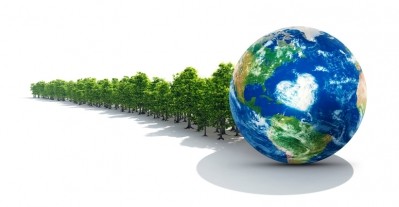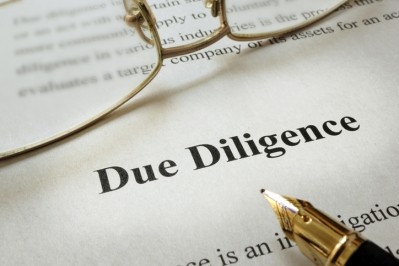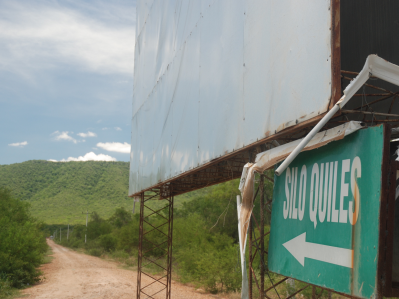European supermarkets launch investigations into Bunge’s links to Cerrado deforestation
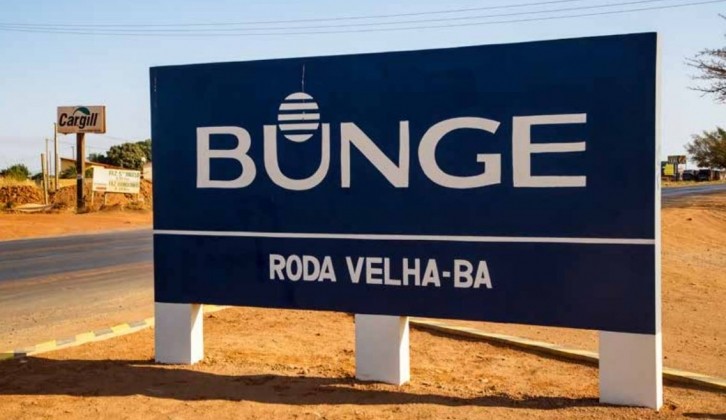
EU supermarkets including Carrefour and Casino in France, Ahold Delhaize and Jumbo in the Netherlands as well as Aldi South from Germany have launched investigations following the publication of the findings, noted the US campaign group.
The Mighty Earth led probe claims Bunge recently bought soy from three suppliers responsible for 11,351 hectares of deforestation in the Brazilian Cerrado, cleared after 2021. Invoices of the transported grain loads confirm the commercial operations and tie Bunge facilities directly to three farms where deforestation occurred, said the campaigners.
AidEnvironment, a Mighty Earth partner, also detected another five cases linked to an additional 14,598 hectares of deforestation that took place in the Cerrado in early 2023, in high-risk municipalities where Bunge is the leading soy exporter, noted Mighty Earth. The exported product goes to the four main soy importing countries in Europe: Spain, France, Germany, and the Netherlands, it added.
Bunge pledge
Last year, Bunge announced a commitment to be free of deforestation and native vegetation conversion in its value chains in 2025.
While Amazon deforestation is limited to 20% of a farmer’s property, producers in some areas of the Cerrado can clear up to 80% of their land legally. Rob Coviello, Bunge’s chief sustainability officer (CSO), told FeedNavigator in May 2022: “That legal right to deforest is not going to be part of our supply chains in 2025.”
Legal right to deforest
Bunge responded to Mighty Earth, confirming it had recently been sourcing soy directly from four of the eight farms identified with deforestation in the investigation.
The activists said that the soy trader showed no intention of stopping supplies from the four farms because, in its view, the deforestation was legal, according to Brazilian laws.
Bunge told the advocacy group:
“We have reviewed our database in respect to the nine farms which were identified in your letter that are implied to have a connection with Bunge: Our due diligence process identified four farms with whom we have direct relationships. (...) We note that although land clearing occurred, soybeans have not necessarily been planted after clearing.
“We also identified one of the farms cited as an indirect supplier through a reseller; the farm is currently undergoing approval by the environmental agency in accordance with Brazilian environmental legislation. (...) farms that are identified as having cleared land are investigated and undergo a due diligence process, whereby they lose access to key market opportunities and programs.
“Between now and until the implementation of our 2025 commitment, we may continue our commercial relationship with the farms if they are able to demonstrate their legal Brazilian right to clear land. Bunge does not have a 2020 cut-off date for deforestation or native vegetation conversion specified in our voluntary commitment.”
Cut-off date
Three years ago, signatories to the Cerrado Manifesto, which included companies and investors that have exposure to the soy market, asked the leading soy traders to stop sourcing from converted lands after a 2020 cut-off date.
At the end of 2020, the largest French retailers made a joint commitment to end deforestation and ecosystem conversion practices for soy production and signed a Soy Manifesto to mobilize French stakeholders to fight against imported deforestation linked to soy from land deforested or converted after 2020.
In March 2022, the Dutch supermarkets, through their retail association, CBL, published a new Manifesto in which Dutch supermarkets expressed their ambition to achieve a deforestation and conversion-free soy chain by 2025, using a cut-off date of January 1, 2020. The commitment was not binding.
In contrast, in December 2020, André Nassar, head of Brazil's oilseeds crushers’ group, Abiove, claimed that setting 2020 as a cut-off date to ban new deforestation and land conversion for soybean areas in Brazil’s Cerrado savanna is not feasible: “Imposing a cut-off date would mean excluding farmers even when they expand areas legally,” Nassar told Reuters.
Abiove proposed instead that financial incentives should be introduced, which would give farmers compensation for not opening up new areas in the Cerrrado.
The Responsible Commodities Facility (RCF) launched in 2022, with backing from UK supermarkets, Tesco, Sainsbury's and Waitrose, is designed to do just that. It provides low-interest loans to farmers to cultivate soy in existing cleared and degraded lands in order to discourage further expansion of agricultural land in the Cerrado.
Threatened ecosystem
Mighty Earth said European countries, major retailers, the meat industry, and animal feed companies have a key role to play in stopping the current deforestation and degradation in the Cerrado—a globally significant biome.
Known as an ‘upside-down forest’ because its root system is immense, the Cerrado contains 5% of the world’s biodiversity; it is a vast tropical savannah of over 200m hectares in central Brazil, and a huge carbon sink storing an estimated 13.7bn tons of carbon in its soil and through that deep roots system.
But the Cerrado has become Brazil’s most threatened wooded ecosystem, with half of the biome having been deforested and converted to crops or pasture, reads the publication.
With more than 50% of Brazil’s soy planted area, the region is home to Brazil’s new agricultural expansion front: the states of Maranhão, Tocantins, Piauí, and Bahia.
“Deforestation in the Cerrado is at a record high. It reached 353,200 hectares between January and May 2023, the highest in the last five years," noted the activists.
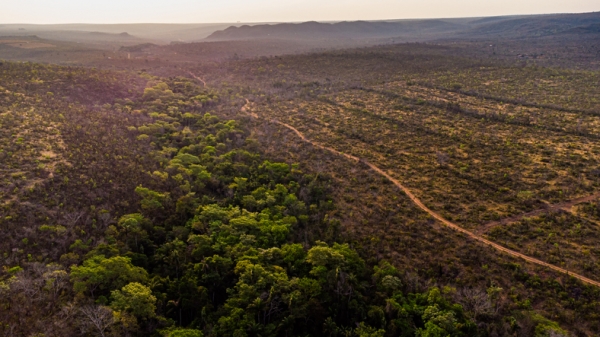
"According to the last five years of available data from the Trase platform (2016-2020), the Netherlands is the world’s third largest importer of soybeans from the Cerrado biome, followed by Spain (fourth), Germany (sixth) and France (seventh). Analysing only Bunge’s soybean imports from the Cerrado biome over the same period, Spain becomes the second-largest importer from the Cerrado after China, followed by France and Germany, according to Trase."
The retailer's view
Mighty Earth and its German partner, DUH, contacted 100 companies in the four largest European countries importing soy from the Cerrado (France, Spain, Germany, and the Netherlands) and received 56 replies. Out of them, it said 9% confirmed to have commercial relations with Bunge—among them, retail giants like Carrefour in France and Jumbo in the Netherlands.
“In response to our findings, major retailers Carrefour, Casino, Ahold Delhaize and Aldi South confirmed that they have launched investigations into our deforestation allegations linked to Bunge.”
Some companies said they have stopped sourcing from Bunge in South America, namely Cooperl in France and German feed producer, Agravis.
Others polled did not comment on their links to Bunge or were not able to assure they have no links to the soy trader.
Statement from Bunge
Bunge sent FeedNavigator an emailed statement on the claims in the report:
“Bunge´s commitment to be free of deforestation and native vegetation conversion in the value chains in 2025 is a central part of the company's business strategy and planning. Bunge does not source soy from illegally deforested areas and has maintained strict control over socio-environmental criteria in our operations.
“We use cutting-edge satellite technology to monitor priority areas in South America – over 16,000 farms, covering more than 20m hectares. As a result of our efforts, over 97% of our soybean volumes from Brazil are deforestation and conversion-free. This shows that we are close to reaching our goal of zero deforestation in 2025.
“Our monitoring is capable of identifying changes in land use and soy planting on each of the farms we source from and captures any new cleared lands in the monitored regions. When monitoring identifies legal land clearance, we engage with farmers according to our step-by-step process described in our sustainability report, including farms mentioned in Mighty Earth’s report. If the result of the process is not positive, we block trade with the property. After our 2025 deforestation-free commitment, farmers that have planted soy over recently cleared lands will be excluded from the supply chain.
“Our sustainability standards have requirements that go beyond local legislation, which is why, until 2025, our policy considers an important approach aimed at raising awareness among suppliers in order to guarantee a truly responsible chain.
“Bunge also works through associations, initiatives and in direct partnership with our value chain peers to ensure industry-wide success on the establishment of a suitable cut-off date to be defined, as this is something that requires collective agreement and appropriate consultation of local communities. We are pleased that our peers have accelerated their non-deforestation deadlines to align with our own 2025 commitment and will continue to urge further alignment on our collective goals through platforms such the Soft Commodities Forum, the Agri-Trader Soy Roadmap, and Abiove.
“However, we are fully aware of the December 31, 2020 cut-off date specified in the EUDR and will take steps to ensure compliance with this and other applicable laws.
“The majority of our sourcing in Brazil is direct, to which we have already achieved 100% traceability and monitoring, audited every year by a third-party. Last year we announced that we overperformed our interim target for indirect traceability and have now reached 82% of the purchased volumes in key regions, such as the Cerrado. This is being accomplished through the Sustainable Partnership Program, a pioneering initiative to support grain resellers in the adoption of socio-environmental verification systems, traceability, and monitoring, enabling them to improve visibility into their supply chains….
“Additionally, credible allegations of human rights abuse or other forms of exploitation are not tolerated. Farms that have been identified by the authorities to have engaged in human rights abuse are promptly blocked from our supply chain. Amongst other safeguards, we conduct daily checks of the public list drawn up by the Ministry of Labor and Employment of businesses that have subjected workers to conditions analogous to slavery. We continue to enhance our governance and practices on human rights matters, including establishing a global human rights team in 2022, and issuing our global human rights policy in early 2023.
“Bunge reiterates its confidence in the socio-environmental verification and monitoring systems that it has structured over the last few years and remains committed to promoting leading standards and to develop practical and sustainable approaches. This is part of our strategy, and we remain committed to this journey.”
Call to action
Mighty Earth is calling on retailers and the meat industry to:
- Exclude deforesters from their supply chains by immediately ending all direct and indirect sourcing from soy farms, traders, meat, and dairy companies that fail to comply with a 2020 deforestation cut-off date.
- Establish a dedicated public platform on which soy origins at the group level (including traders, ports, silos, crushers, and direct and indirect producers) is published, plus the alerts in the supply chain and the proportion of soy coming from zero-deforestation and zero-conversion supply chains.
The campaigners want Bunge to:
- Adopt and implement an ambitious No Deforestation, No Exploitation policy with a 2020 deforestation cut-off date for all natural ecosystems, and immediately suspend farms and suppliers confirmed to be in violation of the policy.
- Set up an open and public grievance mechanism to report on and track all deforestation and human rights alerts.
- Ban any commercial ties with farms and suppliers linked to violations against human rights, Indigenous rights, or land property rights.
And Mighty Earth is urging the EU to:
- Expressly include the Cerrado and all other natural ecosystems in the scope of the EUDR and reaffirm a broad post-2020 deforestation cut-off date.
- Reject any free trade agreements that threaten fragile natural ecosystems (such as the Cerrado) and that fail to protect the rights and livelihoods of traditional and Indigenous communities.
